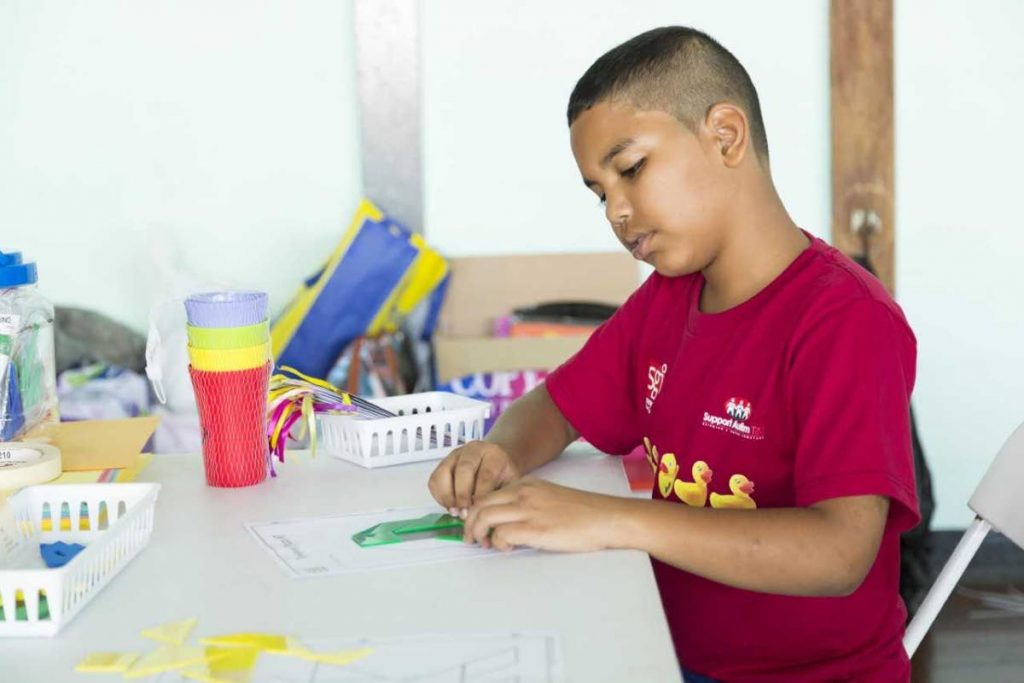Restructuring welfare for special needs

DR RADICA MAHASE
“MADAM Speaker, we propose to remove the age eligibility for the disability grant under the Public Assistance Act Chap 32:03 to allow disabled children under the age of 18 to access the grant. Currently, 1,024 disabled and special needs children receive grants of $800 under the Special Child Grant and $1,150 under the Public Assistance Grant. I propose to cease payments under these two outdated grants and to bring these recipients under the disability grant with an increased monthly grant of $1,500. This measure … will take effect on January 1, 2019.” This was stated by the Minister of Finance, Colm Imbert in his 2018 Budget presentation.
These words were more or less parroted by the Minister of Social Development and Family Services Cherrie-Ann Crichlow-Cockburn, in her contribution to the Fiscal 2018/2019 National Budget Debate, where she also stated, “This proposed measure would apply to persons currently in receipt of either grants and to all new applicants, and would allow for parents or caregivers who apply on behalf of children with a disability, to be exempted from means testing associated with the public assistance and special child grants and for such children to be paid TT$1,500 monthly.”
The message given is that children who are currently getting the special child’s grant and the public assistance grants will now get more money from January 1, 2019, under the disability grant. However, in reality, many of these children have already stopped receiving the special child’s grant and the public assistance grants and parents are unsure as to the steps towards accessing the disability grant.
In a recent meeting with Vijay Gangapersad, deputy permanent secretary in the Ministry of Social Development and Family Services, it was clear that officials in the ministry were either in denial or clueless that the grants had already been cut for some children with special needs. It took one hour and phone calls to two parents who explained their situations before Gangapersad was willing to accept that grants were already being cut and that some parents had failed the means tests.
One mother, Elizabeth, informed him via telephone that her grant was cut since April, with no contact from the ministry. When she visited the ministry she was told that they will look into it and get back to her. When she went back to the ministry to check up again, she was told she will not receive the grant because she lives with her parents and both of them were pensioners and therefore the household income was above that stipulated by the means test.
What is even more disturbing than the denial and defensive stance adopted by the ministry is the fact that the “restructuring process” itself is not very clear. Imbert announced that the special needs child can access the disability grants from January 1, 2019. However, Gangapersad admitted that there is a “transition period.” He stated, “I am certain that there would be some administrative arrangements... the budget hasn’t been passed as yet...there is a budget debate, there are now measures we have to put in place, there are some administrative details that we have to go about before we communicate with the population.”
The only assurance that Gangapersad could give was that there is a possibility that parents might continue getting money in January. He did note, however, “All of these children who are on public assistance which is means tested will be afforded assistance under the special child grant. In cases where the public assistance has to be stopped because of the means test, the instructions have already been given by the ministry that such children will be provided with assistance under the special child grant from now on.”
When asked what happens in the case of Elizabeth from now until the end of the year, he said she would get the special child grant immediately. He said parents whose grants have been cut need to go back to their ministry’s offices to find out about getting the special child’s grant and when the budget is passed in both the Lower and Upper house, the ministry will communicate to public on the next step forward.
So effectively, the ministry has already cut some grants completely; those who are receiving the public assistance grant of $1,150 will have that cut and they might get the Special child’s grant of $800 (less money) and parents just have to wait and see when they can access the disability grant.
Dr Radica Mahase is founder/director,
Support Autism T&T


Comments
"Restructuring welfare for special needs"